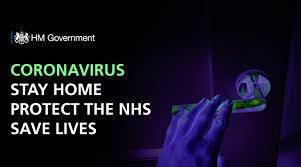The extraordinary measures required to save lives and protect the NHS have had equally extraordinary consequences for our society. Businesses large and small are wondering if they will be able to survive this, funerals are going ahead with only a handful of people present and the sports and culture that make us what we are noticeable by their absence.
But not every consequence has been negative. We’ve discovered that the vast majority of British people will make massive changes to their daily habits for the greater good, they will stay at home, stop socialising and place huge limitations on themselves so we as a society can save lives and protect the NHS. We have not had to create a police state to enforce these stringent regulations. People have done it because it is the right thing to do. That does not surprise me, we are on the whole a very decent lot, but I find it inspiring nonetheless.
Organisations, too, have had to react and respond more quickly than ever before to ensure they can keep operating. Home working has become the new normal for anyone with an internet connection, and businesses have had to change rapidly to allow staff to work hours that are more flexible than they ever have been as families juggle childcare commitments and professional lives. We have also perhaps learned to reassess who we deem as important – anyone working in food provision, from a farm labourer to a supermarket deliver driver – is now recognised for the vital role they play in our lives.
At the Office of the Police and Crime Commissioner we are working more closely with others than we ever have done before. Some of our staff have been seconded into the police force to help in communications and at the Victim Care Unit. Our estates team has been working with the police on two really important projects, one will allow Exeter Police Station to open this week – a fortnight early, because its state-of-the-art custody facility is much better than the one it replaces when it comes to dealing with infectious detainees. The second project, to replace Barnstaple Police Station, is continuing simply because new technology has allowed the meetings and decisions to take place.
We are also working hand in hand with other public sector organisations around the force area through the Local Resilience Forum (LRF) – a structure which ensures we are all pulling in the same direction – and through informal networks. This week this has enabled a co-ordinated response to the possibility that people might see Devon and Cornwall as great places to visit this Easter, our message being that although we normally welcome tourists (our economy depends on them) now is not the time to be risking spreading the virus and potentially putting additional strain on the NHS in parts of the country that you are not registered.
While in normal time a speedy consensus between Devon and Cornwall’s many councils, emergency services tourism bodies would be relatively unheard of, we have spoken with one voice this week, and we are all getting behind the #ComeBackLater campaign launched by the region’s biggest publisher, Reach Plc. That campaign saw the Chief Constable appearing in national media on Saturday morning to deliver the message loud and clear that underlined the seriousness of the situation, while councils reminded accommodation providers of their obligations. That concerted effort will stop people travelling to the Westcountry, reduce the spread of Covid-19 and potentially save lives.
Although I am sometimes frustrated by the pace of change in policing, when faced with an emergency the force can be incredibly nimble. I have already written about the 40 student officers who were trained to answer 999 calls in just three days, and the additional sergeants who can now fulfil custody duties. I would now like to pay tribute to the men and women who have worked tirelessly to ensure that the public enquiry office and custody centre at Exeter Police Station opened for business at 8am on Tuesday of this week (April 7).
All of this work has built resilience. Resilience in policing and resilience in the regional economy. I will be working to ensure that the bonds forged during this crisis, and the new ways of working to create a flexible and dynamic workforce, are not lost when this epidemic is over.
And when restrictions are lifted the partnerships we have forged will be able to say with one voice that the South West is back open for business.
Alison Hernandez


